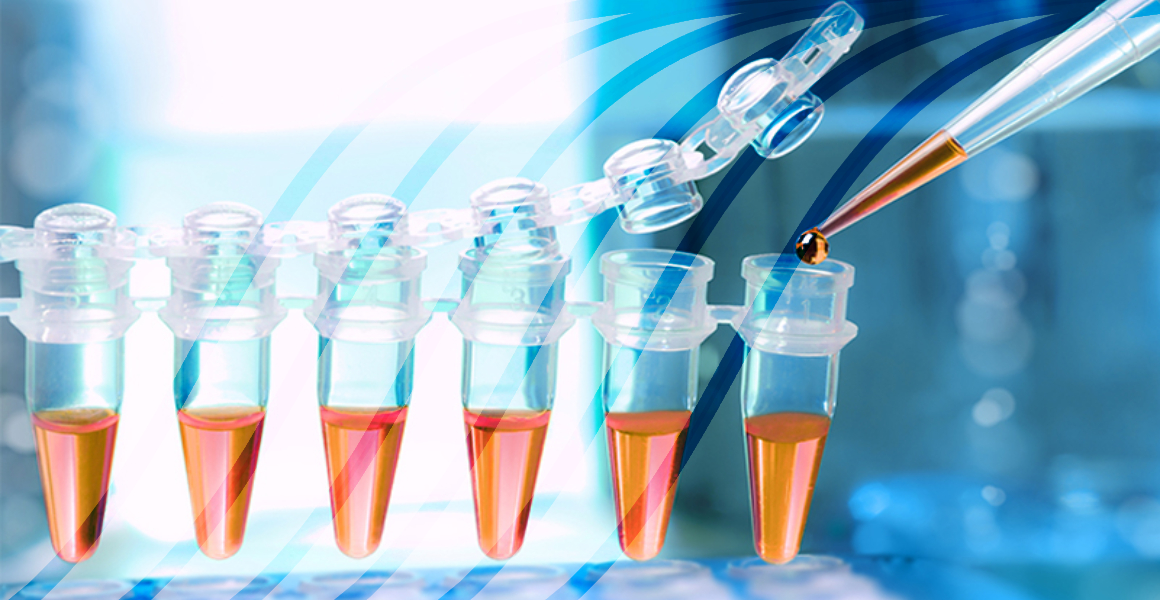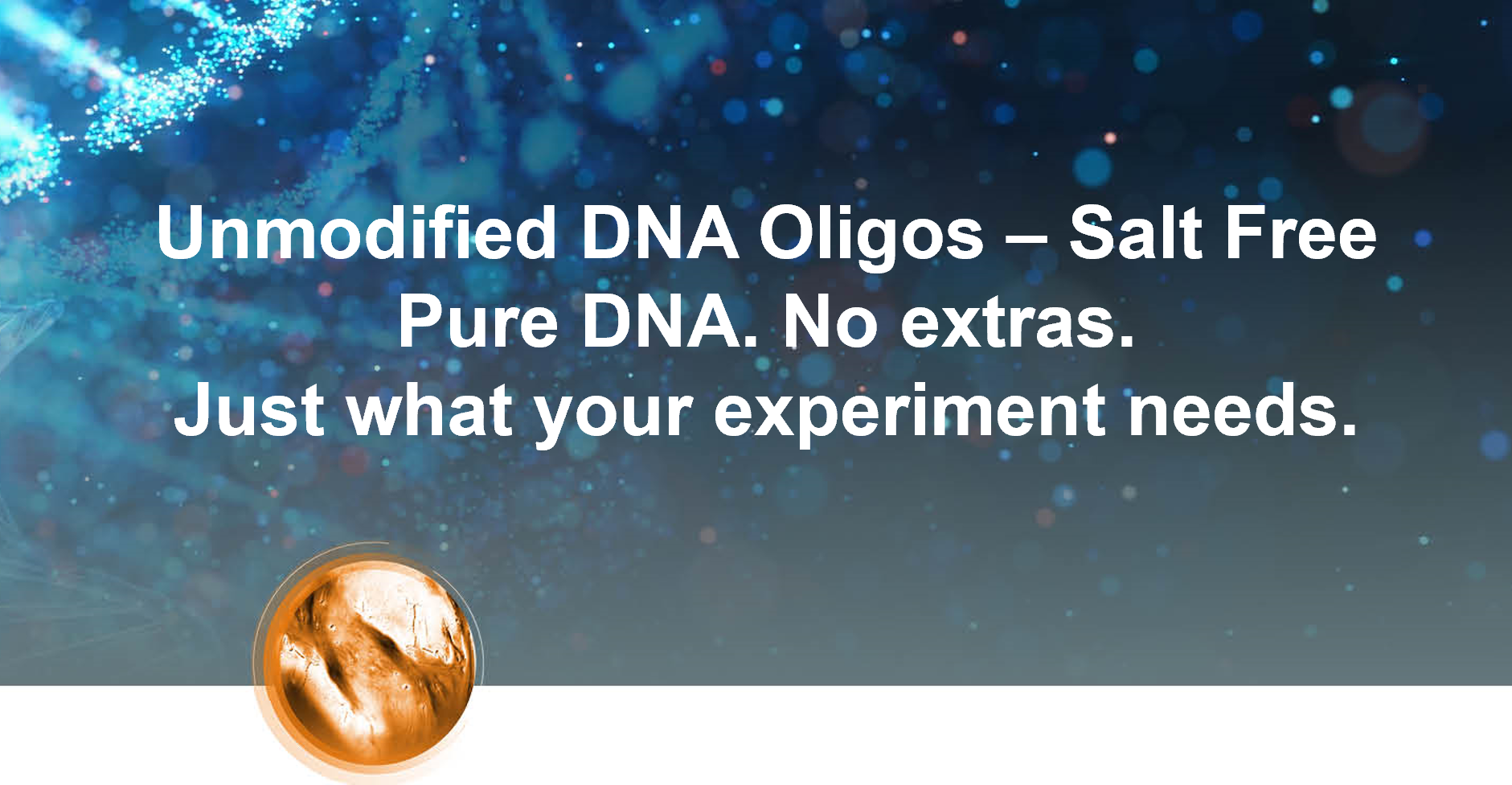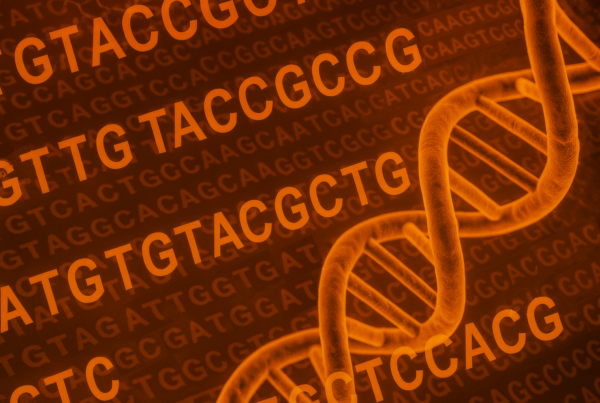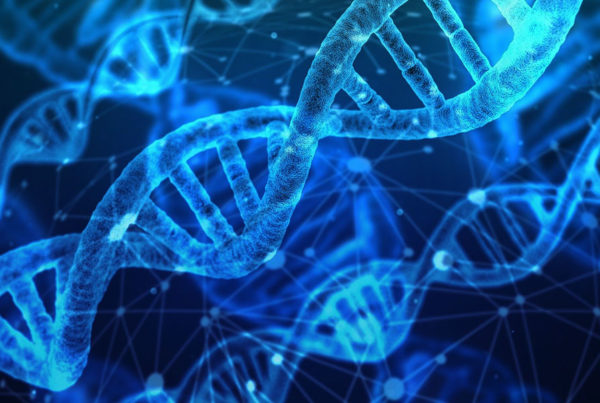Not every experiment requires bells and whistles – often the workhorses of molecular biology are simple DNA oligonucleotides that just get the job done.
Unmodified DNA oligos don’t contain modifications or ultra-high purification, but they form the basis of countless PCR reactions, Sanger sequencing runs, and cloning procedures daily. In fact, salt-free oligonucleotides are the unsung heroes in labs around the world. They represent pure DNA with no extras, offering reliability and efficiency for everyday science. They are often the smartest choice for routine applications.
What does “salt-free” mean in DNA oligos?
For DNA oligo synthesis, options like “desalted” or “HPLC purified” can often be chosen Salt-free oligos are DNA oligonucleotides that have been through standard desalting but no further purification. In practical terms, “salt-free” means the oligos are cleaned of residual salts and synthesis byproducts, just leaving the DNA.
During DNA oligo synthesis, various protecting groups and reagents are used, and the crude product contains the target sequence plus small leftovers (salts, truncated sequences, etc.). A salt-free specification implies that those impurities have been washed away after the synthesis. The result is a sufficiently pure primer that is ready to use for many experiments.
Importantly, salt-free does not mean low quality. It simply indicates the oligo hasn’t undergone extra steps like HPLC or PAGE purification. For most general molecular biology tasks, those extras aren’t needed.
High coupling efficiency: Quality without extra purification
One reason salt-free oligos work so well is the impressive efficiency of DNA synthesis chemistry. Each base addition has a coupling efficiency usually around 98–99%. Eurofins Genomics, for example, achieves coupling efficiency typically above 99% for their oligonucleotide synthesis. This means that even without specialised purification, the majority of DNA oligos in a solution are full-length product.
For a typical ~20-mer primer, around 80% of the molecules are full-length, and the minor truncated fraction has negligible impact on PCR or sequencing results.
Salt-free unmodified DNA oligos:
- Do not need further purification
For the vast majority of applications, an oligo made under these conditions is good to go without HPLC or PAGE. - Have fast turnarounds
Skipping extra purification saves time. Salt-free unmodified DNA oligos can be synthesized and delivered quickly – often within 1 working day. - Are cost-effective
Every extra purification step adds cost. By using salt-free oligos when ultra-pure or modified primers are not necessary, researchers save their budget for other needs.
At Eurofins Genomics, every oligo batch is subject to stringent quality checks. Our synthesis processes are ISO 9001 and 13485 certified, meaning that our DNA oligos are of high-quality, just without add-ons.
Ideal applications for salt-free oligonucleotides
Salt-free unmodified oligonucleotides are ideal for a broad range of standard molecular biology applications:
- PCR primers
Routine endpoint PCR or even most qPCR assays can use salt-free unmodified primers with great success. There’s usually no need for expensive purification for primers when amplifying genes or doing colony screens. - Sanger sequencing primers
A salt-free primer is typically more than sufficient for Sanger sequencing. - Cloning or mutagenesis primers
Primers that introduce restriction sites or site-directed mutations are commonly used straight from standard salt-free synthesis. As long as the oligo is correctly synthesised, downstream cloning will work. Any minor truncated portion of the DNA oligo won’t amplify and thus won’t interfere with obtaining the desired clone. - Genotyping and other assays
Any application where an DNA oligo hybridises to a target and perhaps initiates polymerase extension or ligation can use salt-free unmodified oligo.
Salt-free oligos truly are the default choice for everyday experiments.
When to consider more than salt-free oligos?
Salt-free oligos cover most needs, but there are scenarios where additional purification or modifications make sense:
- Ultrasensitive assays or clinical diagnostics
NGS library prep, digital PCR, or a regulated diagnostic assay require HPLC/PAGE purified oligos or specialised probe oligos to ensure maximum purity and performance. - Very long or modified oligos
For primers approaching the length limit of synthesis, or with very high GC content, the full-length synthesis yield drops, so further purification can help. Similarly, oligos with fluorescent labels, quenchers, or other chemical modifications are often purified with appropriate processes by default.
DNA oligonucleotides are often taken for granted in molecular biology, yet they are at the heart of so many experiments. Salt-free unmodified DNA oligos might not be glamorous, but they enable breakthroughs by being readily available, reliable, and affordable.
And when research requires more such as highly sensitive qPCR assays in a clinical setting, specialised oligos exist for those situations. Find out about our qPCR primer solutions for regulated, high-sensitivity workflows.
Did you like this article? Then subscribe to our Newsletter and we will keep you informed about our next blog posts. Subscribe to the Eurofins Genomics Newsletter.







